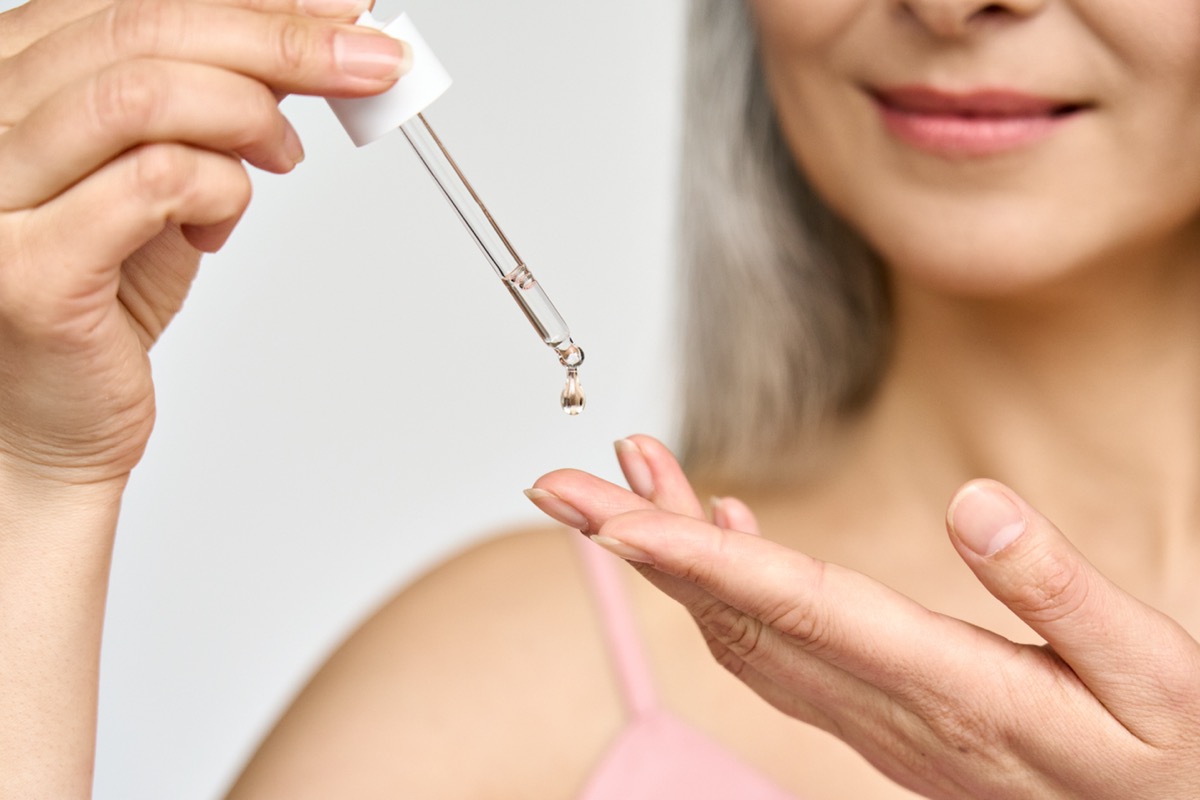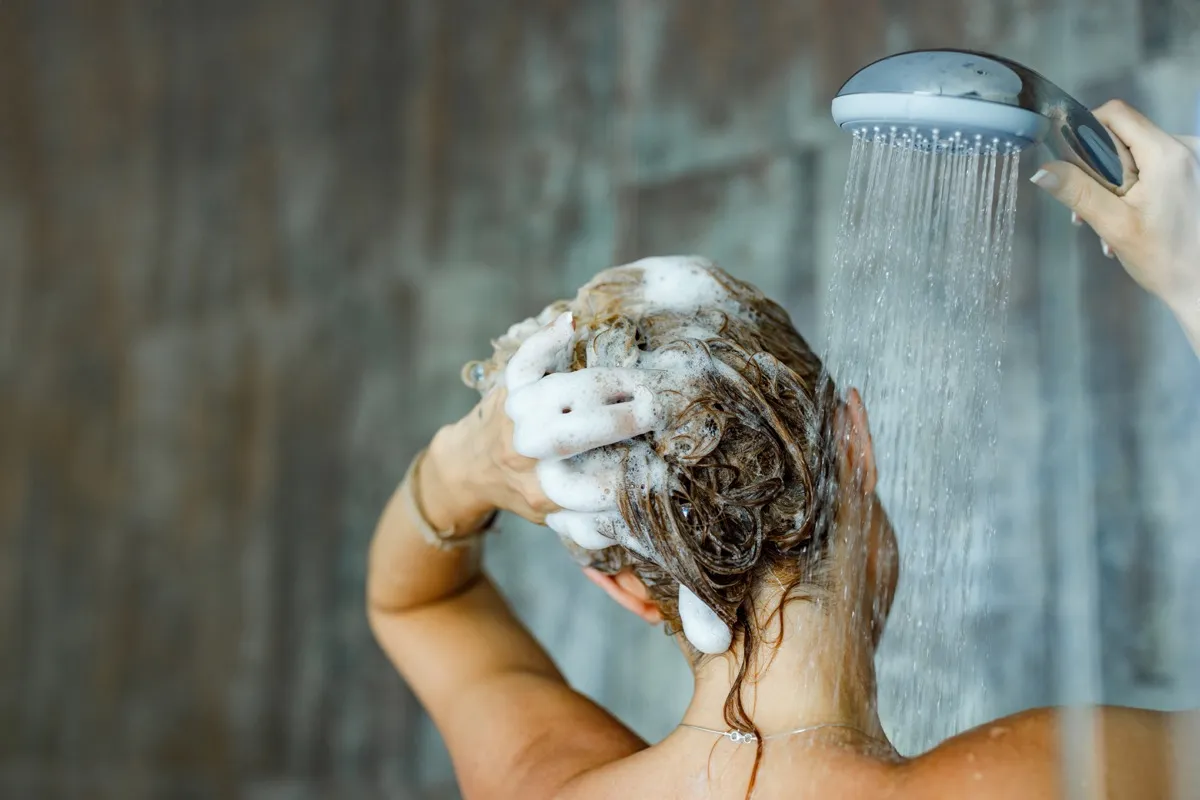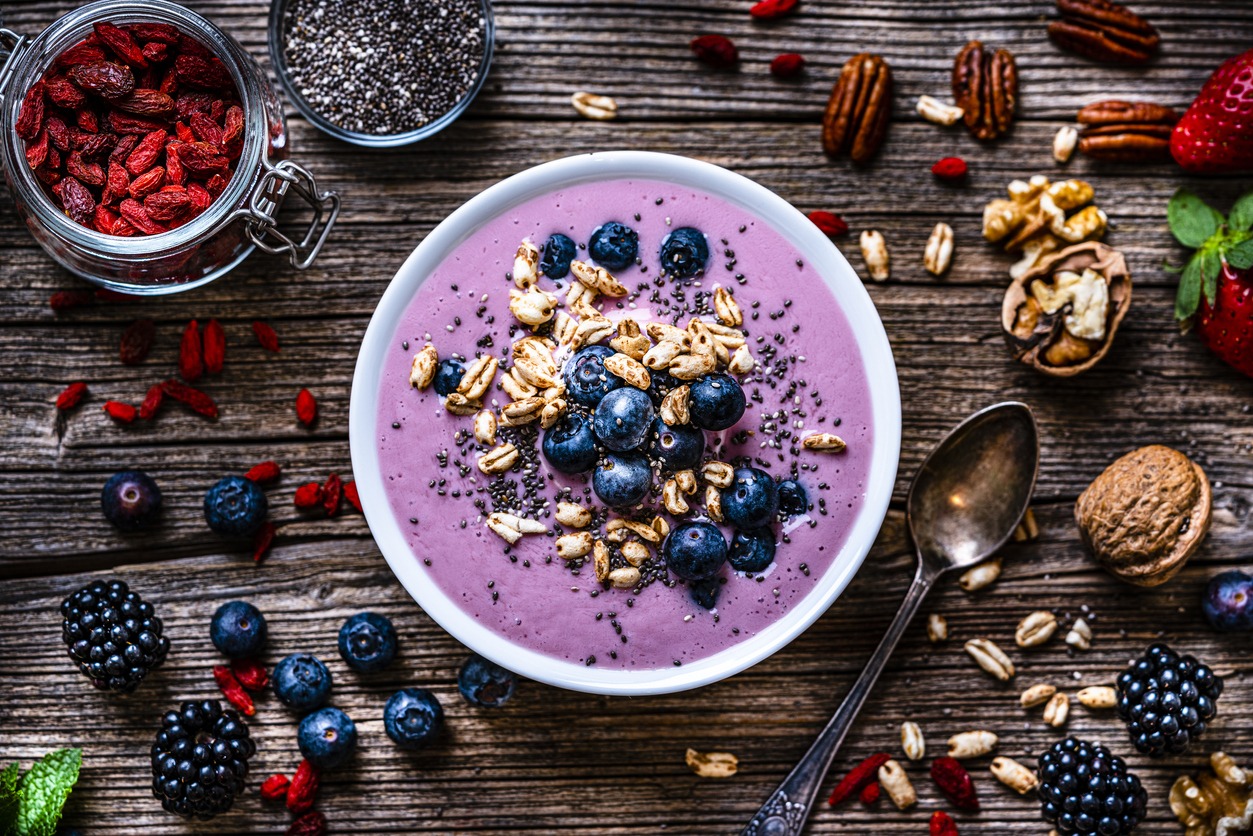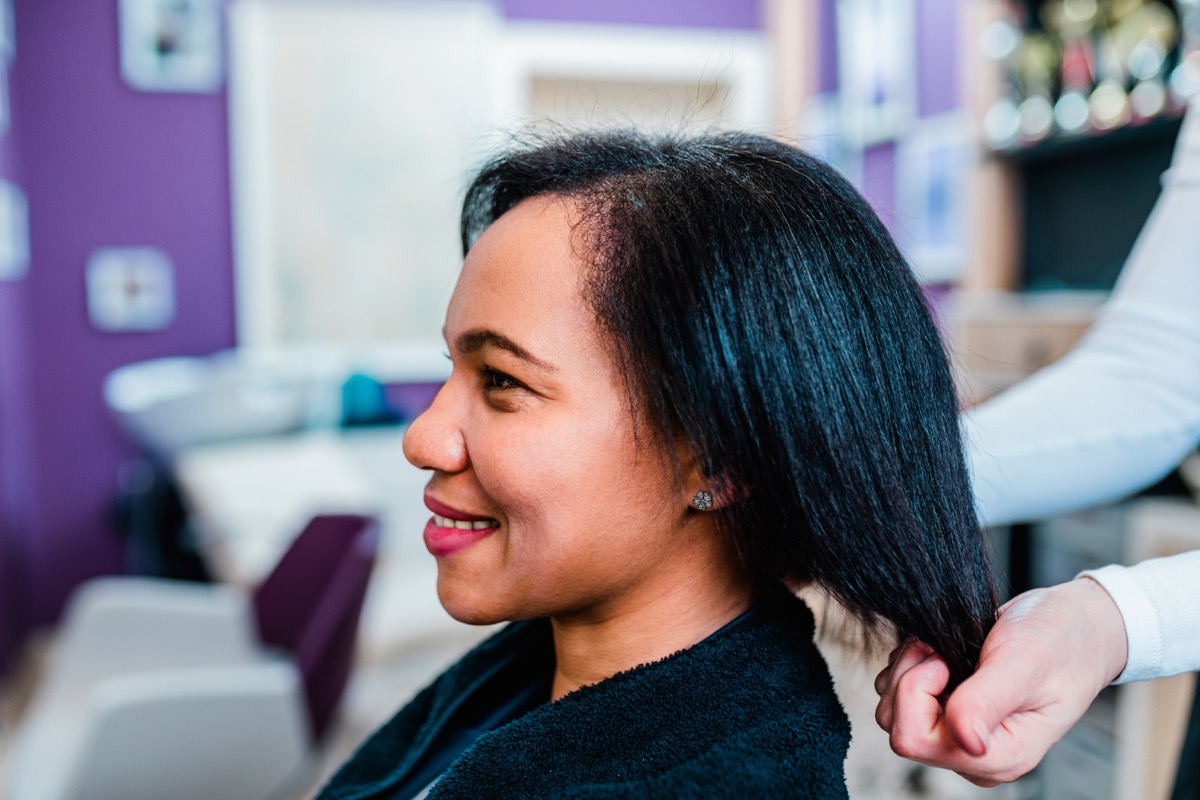5 Secrets for Thicker Hair Over 50, According to Stylists and Doctors

There’s no beauty conundrum more frustrating than watching your hair thin with age. Sometimes, it seems that no matter how much time, money, or effort you put into keeping your strands strong and healthy, you still find your mane looking less voluminous every day. However, while a certain amount of thinning is normal, you don’t have to resign yourself to a lifetime of limp locks. Keep reading to hear from hairstylists and dermatologists about the key ways to maintain thickness over the age of 50.
READ THIS NEXT: If You’re Over 65, Not Doing This in the Shower Is Causing Hair Loss.
1
Determine the cause of hair thinning.

As we age, a certain amount of hair thinning is to be expected.
“Thinning hair can be a result of stress, hormonal changes, medication, vitamin deficiencies, chemical hair services, color processing, over-exposure to hot tools and tension, as well as over-processed color amenities, to name a few,” says Parker Plotkin, senior stylist at Julien Farel Restore Salón Palm Beach. “It’s always best to consult with both your hairstylist and doctor to determine the precise cause of hair loss over 50. There is usually either an internal or external reason.”
Once you identify the source, you can more easily find a targeted solution.
2
Invest in a thickening product.

You’ve probably seen many hair-thickening products on the market and wondered if they work. It turns out, they do!
“Some of the top recommended ones are those that contain keratin, biotin, collagen, and other nutrients that work together to promote healthy hair growth,” says Harikiran Cheruki, cosmetic surgeon, dermatologist, and medical head of ClinicSpots. “These ingredients can help strengthen the strands from within and increase volume without causing damage or weighing down the hair.”
There are also products that a doctor can prescribe, should they decide it’s necessary. According to Plotkin, those include dutasteride, minoxidil, tretinoin, spironolactone, and ketoconazole. As you discuss your hair thinning with your doctor, they’ll be able to recommend the best one for you.
READ THIS NEXT: If Your Hair Is Thinning, This Food Could Be to Blame, Study Says.
3
Choose a thickening shampoo.

Our hair’s needs change as we age. In our sixth decade, our scalps produce less oil and sebum, which can make hair drier and wirier. All that means is that you should switch up your wash routine.
“It is important to choose a shampoo and conditioner that are specifically formulated for aging hair,” says Cheruki. “The shampoo should be mild enough not to strip away natural oils from the scalp. Additionally, look for products that contain nourishing ingredients like collagen and keratin to help strengthen strands.” A volumizing or thickening formula can also add lift to your locks.
4
Boost your diet.

Now more than ever, diet counts for your hair health. “Eggs are high in protein and biotin, both of which are essential for hair health and development,” says Anna Chacon, MD, a board-certified dermatologist. “Hair loss has been related to a lack of either of these nutrients.” You’ll also want to load up on berries, which are high in antioxidants and vitamins, Chacon suggests.
Then, there are leafy greens and fish. “Folate, iron, and vitamins A and C are abundant in spinach and are crucial for hair development,” says Chacon. “Omega-3 fatty acids, which are abundant in fatty fish like mackerel, salmon, and herring, may help to promote hair growth and density.”
For more beauty advice delivered straight to your inbox, sign up for our daily newsletter.
5
Elevate your haircare routine.

To maintain thick hair in your sixth decade, you’ll need to upgrade certain aspects of your haircare routine. According to Cheruki, start by getting trims every six to eight weeks to prevent split ends and breakaways. You can also incorporate scalp massages into your routine to promote circulation and encourage hair growth.
Your styling process should change, too. “Avoid over-styling or heat styling your hair to prevent damage and breakage,” Cheruki says. “Use a wide tooth comb when wet, as this will be gentler on the strands and minimize breakage.”
Finally, sleep on a silk pillowcase or headscarf to prevent friction while you sleep. Incorporating these changes will keep your hair strong and healthy and, therefore, thicker and more voluminous.